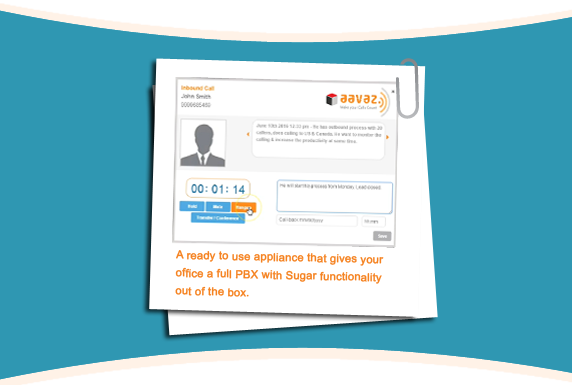Key Differences Between Business VoIP and Cloud Phone Systems You Should Know

A lot of articles use the terms “Business VoIP” and “Cloud Phone Systems” interchangeably. In fact “Cloud Phone Systems” are also often referred to as a “Cloud PBX”, “Virtual PBX”, “IP PBX” or “Hosted PBX”. We have in our articles also been guilty of mixing the terms to avoid adding complexity for the average user who is interested in the technology to help grow their business.
From a business point of view they both allow you to save on the total cost of ownership, unlike on-premises phone systems. Cloud based phone systems are Voice over Internet Protocol (VoIP) based phone systems that are hosted in a data center by yourself or by a third party. They run through the internet connection and allow you to move your business telephony service to the cloud. Getting started with cloud phone systems is easy as all you need is a stable broadband connection and a reliable VoIP service provider.
A cloud phone system is a highly scalable and cost efficient professional phone system that is especially designed for small and medium businesses to eliminate phone hardware installation and management cost. Cloud telephony implementation is easy and quick. You don’t need to wait for a technician to configure your telephone system and install phone lines. You get a phone number and access to an online dashboard through which you can have complete control over phone numbers, call forwarding, adding new users, and more.
With Cloud phone systems, you get advanced telephony features like auto attendants, extensions dialing, and conference bridges. A traditional PBX system doesn’t give you advanced features like HD audio, voicemail to email, or call analytics in. Also, on-site phone systems lack scalability as it’s challenging and time consuming to assign new phone lines with traditional PBX systems. Cloud telephony, more specifically VoIP phone systems allow you to add or remove lines in just a few clicks. Modern telephony systems have altogether made growth seamless as they can be customized as your business needs shift.
Let’s understand each term one by one and know what they both have to offer..
Business VoIP: Your phone line (Voice) over the Internet
Business VoIP is a modern day business phone service that uses an internet connection in place of traditional PSTN landline to send voice, video, and data through the internet. It aims to completely replace and surpass the need for physical hardware and copper wiring needed to run the analog PBXes.
Business VoIP allows you to cut down on costs such as equipment cost, installation cost, repair and maintenance cost, per minute and per feature charges. The best part about using Business VoIP is that it enables small and medium businesses to take advantage of enterprise grade features that are usually reserved for big companies.
Cloud Phone Systems
Let’s break down the term “Cloud Phone System” and it’s various acronyms – “Cloud PBX”, “Virtual PBX”, “IP PBX” or “Hosted PBX”. “Cloud”, “Virtual”, “IP” and “Hosted” all mean that the server providing PBX services is sitting in some data center which is connected to the internet. “Phone System” or “PBX” is what provides all the features that allow you to make and receive calls as a user, and set up your organization users if you’re the manager.
The cloud PBX will use a VoIP service to act as the physical lines that are normally pulled into your office or home to make calls. You can mix and match a PBX with different VoIP service providers.
An aside: You may also hear the term “Unified Communications Systems(UC)” bandied about as well . Which implies capabilities beyond Voice such as Video, Instant messaging. Now most providers of PBX systems that use the term UC, do so knowing that it’s too complicated for most people to use. A PBX can easily extend from Voice to Video, and Instant Messaging for internal users of the system. However, when moving from Internal users to external users such as your customers you need systems that can interoperate with the customers capabilities, and you need to track all the conversations you have over other channels such as Web Chat, WhatsApp, Social Media – this class of service is typically not provided by PBX systems and when you’re looking for something that can do that you need to move into other specialized tools – which may work with your PBX. Example would be Aavaz 361 working along with Aavaz PBX.
Reasons to Move to Cloud Phone Systems
You will find many businesses moving their analog phone systems to IP PBX. The IP PBX system may be hosted on premise or in the Cloud to truly gain all the features and flexibility that an IP PBX can provide.
Here’s a short list of the features:
- Cloud based phone systems offer unmatched flexibility and features such as call hold, call forwarding, auto attendant, contact list well synchronized with office phone system, unified messaging three way conference, follow me and more.
- Cloud Phone Systems save your company’s resources such as time and money by not only taking the hardware installation and management burden off your shoulders but also lowering your total cost of ownership and minimizing operational cost.
- You can get your business phone system running in the cloud with minimal upfront hardware cost and capital expenditure savings.
- Cloud phone systems offer high scalability to businesses as they can add new users without spending money on additional hardware.
- Cloud based VoIP systems support all types of users and workflows including Office Manager, System Administrator, Receptionist and mobile worker.
- Hosted business VoIP phone systems offer you unique one-number reach that allows you to remain available on multiple devices at all the time.
- The cloud phone systems offer all the leading unified communication features at a reasonable price. They are exclusively designed to match business telephony needs of businesses of all sizes.
Now that you are aware of the key differences between Business VoIP and Cloud Phone Systems, it’s ultimately up to you to decide which service is suitable for your business. Get off the ground, do your research, and find out which features match your needs. Whenever you are choosing cloud based VoIP service for your business, always ensure to choose high speed internet service as a bad service can hamper the quality and clarity of your VoIP calls.








